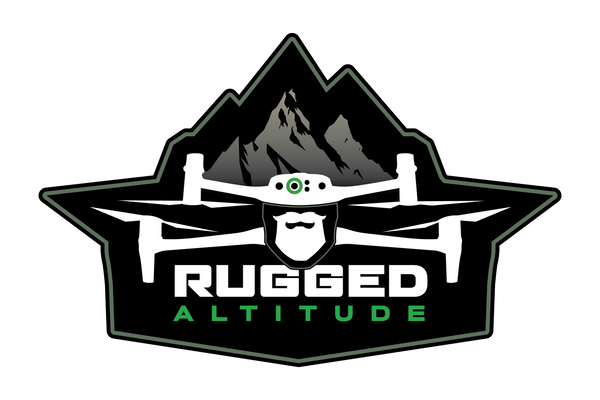Preparing for Drone Operations: Essential Gear and Skills
Share
In the world of specialized drone services, the landscape of aerial applications ranges from wildlife recovery to property management and everything in between. As the demand for these innovative services grows, so does the need for proper preparation and training for drone operations. In this guide, we’ll cover the essential gear and skills you need to effectively execute drone operations in rugged environments.
The Importance of Preparation
Before delving into the specific gear and skills required for drone operations, it’s crucial to grasp the importance of preparation. Effective drone work demands more than just flying a machine; it requires a keen understanding of the challenges faced in the field. Here, preparation translates to having the proper equipment and the know-how to use it effectively, ensuring safety and efficiency while fulfilling operational objectives.
Essential Gear for Drone Operations
The right gear can make a significant difference in the outcome of drone operations. Below are categories of essential gear that every drone operator should consider:
Drones
At the core of any drone operation is the drone itself. The choice of drone should depend on the specific application. For instance, wildlife assessment might require drones equipped with thermal cameras for spotting animals in dense foliage, while property management might utilize drones with high-resolution mapping capabilities.
Remote Controllers
A robust remote controller is pivotal. Look for controllers with strong battery life, an intuitive interface, and compatibility with your drone model. Ergonomics play a crucial role in comfort during extended operations, especially in remote or rugged terrains.
Cameras and Sensors
Depending on your specialization, the type of cameras and sensors attached to your drone can vary. High-res cameras are needed for photography and videography, whereas multispectral sensors are excellent for monitoring vegetation health and land assessments.
Batteries and Power Sources
Having an adequate supply of batteries and backup power sources is essential for prolonged operations. Invest in high-capacity batteries and consider solar chargers or portable generator solutions when operating in remote locations.
Carrying Cases and Transport Gear
Reliable carrying cases provide protection for your drone and accessories, ensuring they are safe from environmental elements during transport. Look for cases that are rugged, waterproof, and easy to carry.
PPE and Safety Gear
While drones enhance operational safety, operators must still prioritize their own safety. Personal Protective Equipment (PPE) such as helmets, gloves, and high-visibility vests are non-negotiable in outdoor operations, especially in rugged terrains or construction sites.
Cultivating Skills for Success
Besides the right equipment, possessing the necessary skills is vital for a successful drone operation. Below are some essential skills that drone operators should cultivate:
Regulatory Knowledge
Before launching any drone, understanding and adhering to local regulations is crucial. Familiarize yourself with FAA guidelines or local aviation authorities governing drone use, especially in sensitive areas like wildlife habitats or urban settings.
Flight Planning
Effective flight planning is essential for maximizing efficiency and ensuring safety. Create detailed flight plans that consider weather conditions, flight restrictions, and terrain challenges. Utilize flight planning software that assists in outlining mission objectives and constraints.
Technical Skills
Beyond operating the drone, understanding the technical specifications, maintenance requirements, and troubleshooting processes is valuable. Being able to perform basic repairs or adjustments can help avoid downtime and may ensure a smoother operational flow.
Mapping and Data Analysis
Harvesting data from drone flights is a significant aspect of various applications such as wildlife assessments and property management. Familiarize yourself with software tools that can analyze aerial imagery and generate useful data outputs. Skills in GIS (Geographic Information Systems) can further enhance your ability to interpret spatial data accurately.
Creative Problem-Solving
In rugged environments, unforeseen challenges can arise. Cultivating problem-solving skills is vital for overcoming obstacles during operations. Be ready to think on your feet, adapting your approach based on real-time observations to maintain operational goals.
The Role of Team Collaboration
Many drone operations benefit from teamwork, especially those involving wildlife recovery or large property assessments. Collaboration involves coordinating with peers, stakeholders, and sometimes local authorities to ensure the success and safety of the operation. Clear communication and well-defined roles within the team can streamline the operation.
Continual Learning and Improvement
The technology surrounding drone operations is rapidly evolving. Staying updated on new developments, attending workshops, and enrolling in training sessions is key to maintaining a competitive edge. Seek out courses that cover new technologies, advanced piloting, and niche applications to broaden your operational skill set.
Concluding Thoughts
As drone operations in various sectors continue to grow, preparation becomes more critical than ever. By investing in the right gear and honing essential skills, drone operators can deliver effective and reliable aerial support, especially in challenging terrains where ground access is limited. At Rugged Altitude, we emphasize the significance of preparation in supercharging our specialized applications such as wildlife recovery, wildlife assessment, and property management. Prepare, equip, and train wisely to succeed in your aerial endeavors.
